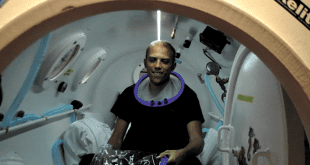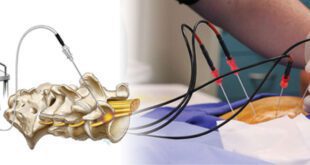 Because August is National Immunization Awareness Month, Dr. Parveen Vahora sheds light on the HPV vaccination updates.
Because August is National Immunization Awareness Month, Dr. Parveen Vahora sheds light on the HPV vaccination updates.
HPV (Human papillomavirus) is thought to affect 80% of sexually active people, and about 79 million people (male and female) are estimated to have the virus. It can cause genital cancers and conditions; the most common is cervical cancer in women. Getting vaccinated against HPV can prevent up to 70% of cervical cancers.
According to the CDC, “Genital HPV is a common virus that is passed from one person to another through direct skin-to-skin contact during sexual activity. Most sexually active people will get HPV at some time in their lives, though most will never even know it. HPV infection is most common in people in their late teens and early 20s. There are about 40 types of HPV that can infect the genital areas of men and women. Most HPV types cause no symptoms and go away on their own. But some types can cause cervical cancer in women and other less common cancers — like cancers of the anus, penis, vagina, and vulva and oropharynx. Other types of HPV can cause warts in the genital areas of men and women, called genital warts. Genital warts are not life-threatening. But they can cause emotional stress and their treatment can be very uncomfortable. Every year, about 12,000 women are diagnosed with cervical cancer and 4,000 women die from this disease in the U.S. About 1% of sexually active adults in the U.S. have visible genital warts at any point in time.”1
There have been a few updates recently as to who can benefit from the vaccine:
1. The only HPV vaccine currently available in the United States is Gardasil 9 and it is now approved for use in males and females between the ages of 9 and 45 years of age.
2. For those under the age of 15, a 2-dose vaccine is recommended for both males and females.
3. For those 15 through 45 years of age a 3-dose vaccine is recommended.
Pap Testing & Guidelines
The most important thing that women can do to prevent cervical cancer is to have regular cervical cancer screenings. These are given during a Pap test or wellness exam, which should be at least every year, or if you are at high risk or have had HPV, cancer, precancer, or other genital disorders, your routine visits should be several times per year. There are preventative tests that Dr. Vahora includes in her regular cervical cancer screening called, Papanicolaou (Pap) test, which checks for HPV specifically.
The latest guidelines for pap smear are as follows:
• Women aged 21–29 years should have a Pap test alone every 3 years. HPV testing is not recommended.
• Women aged 30–65 years should have a Pap test and an HPV test (co-testing) every 5 years (preferred). It also is acceptable to have a Pap test alone every 3 years.
Most insurance covers a pap smear as part of your yearly wellness examination once a year. Its best to see your gynecologist or woman health care provider yearly for your wellness, and they can decide with your history whether you need a pap smear or not. Do not put off your annual gynecological exam.
Pre-Cervical Cancer
When routine examinations are done regularly, pre-cervical cancer can be detected relatively easily. A minimally-invasive in-office procedure can remove the precancerous lesions without much discomfort or complications.
Cervical Cancer
Cervical cancer is a fast-growing disease that can lead to death if not caught in its pre-stages. Years ago, cervical cancer was a leading cause of death in women, but because of educating and follow through with routine gynecological visits, those statistics have changed. Depending on the stage of the cancer, many women will undergo a hysterectomy and chemotherapy.
Hysterectomy
Dyspareunia (painful sex) is a symptom of vulvar and vaginal atrophy (VVA) and can be exacerbated by the effects of hysterectomy. Due to the limited estrogen supply, the walls of the vagina start to thin out, causing dryness, burning, and inflammation. This can make intercourse very painful and can cause urinary disorders and can even interfere with daily activities for many women due to the extreme pain and discomfort that it can cause.
MonaLisa Touch®
Non-Hormonal Advanced Treatment
The MonaLisa Touch® is a new laser therapy for the vagina and vulvar. There are no medications, not cutting and no lengthy healing times with this procedure. It’s similar to having a Pap smear test done. The laser does not hurt or cause any pain. You will only feel tiny vibrating sensations from the machine, and the best part is that the entire procedure is accomplished in an outpatient, office setting.
The laser assists with the bodies cell renewal and regenerates the mucous membrane and help with the restoration of collagen and renewing the proper trophic balance to the membrane. MonaLisa Touch® is a functional vaginal rejuvenation treatment based on a unique fractional CO2 laser. This device was created specifically for the vaginal mucosa and is presently the most effective procedure for preventing and treating vaginal atrophy and its painful conditions.
Now it’s possible to have relief from vaginal and vulvar atrophy due to the MonaLisa Touch’s® ability to gently improve the tissue of the vaginal mucosa. The laser stimulates the production of collagen, improving the functionality of the treated area and restoring the proper trophic balance to the mucous membrane.
Call today to schedule an appointment and/or your Mona Lisa Touch consultation at (727) 376-1536.
Parveen Vahora, M.D.
A Board Certified, fellowship trained laparoscopic gynecological surgeon, Dr. Vahora sees patients in her private practice in Trinity, Florida. She is an expert on sexual health and intimacy. In addition to being the only practitioner in the area to offer the MonaLisa Touch® Laser, Dr. Vahora performed the first single-site robotic hysterectomy in North Pinellas County. She is highly trained in minimally invasive procedures for conditions such as pelvic pain and is able to conduct sophisticated genetic testing.
Don’t just live with your sexual discomfort, get the relief and new beginning that you are worthy of. Call today to schedule an appointment and/or your Mona Lisa Touch consultation at (727) 376-1536.
Info@ParveenVahoraMD.com
www.ParveenVahoraMD.com
References:
1. Centers for Disease Control and Prevention, “HPV Vaccine
Information For Young Women,” US Dept of Health and Human
Services, CDC.gov
Check Also
How Nancy Went from Excruciating Neck Pain All Day, Everyday….to No Pain!
Millions of people are suffering from chronic pain. Some resort to surgery and some may …
 Central Florida Health and Wellness Magazine Health and Wellness Articles of the Villages
Central Florida Health and Wellness Magazine Health and Wellness Articles of the Villages



